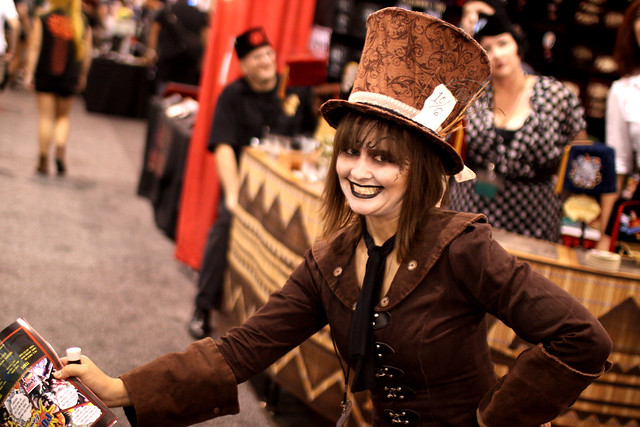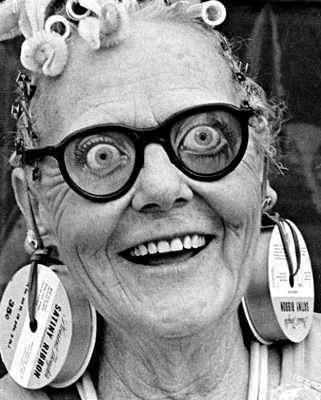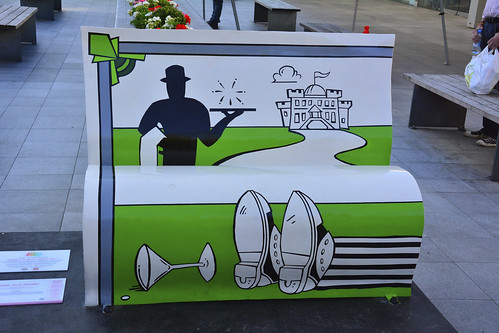We’ve had Ethic, we’ve had Æsthetic; now we’re back to the Eccentric, viz. Are you an eccentric? If not, why not? Are you sure?

To save you expending your little all on proper certification from suitably qualified psyche-specialists, allow me to proffer the following quiz, based on the work of David Weeks (author of The Gifts of Eccentrics and co-author with Jamie James of Eccentrics: A Study of Sanity and Strangeness). Loosely based on. Inspired by. Which is to say, extrapolated from an article which refers to his work, without actually quoting him.*
Consider the following statements, and give yourself one point for each you agree with – two if you agree strongly.
- I refuse to let the world squeeze me into its own mould (as Paul recommended to the Romans). I don’t conform to the expectations of others, or society at large. (Sorry, no extra points for being a Nonconformist.)
- I enjoy indulging and exercising my creativity.
- I am insatiably curious: I just have to know. (Famous last words: I wonder what happens if I-)
- People sometimes call me idealistic – apparently not meaning it as a compliment. As Brooke Fraser so memorably put it, “It could be fun to try / I think that I’ll save the world… as a fun afternoon activity.”
- I love my hobbies! You call it obsession; I call it passion. And why limit myself to only one? (Weeks suggests five or six is the usual score.)

Speaking of scores, how are you doing so far? Most eccentrics have all five of these traits. But don’t worry, we haven’t finished yet. Moving on!
- I have always known that I was different, even when I was just a little kiddy.
- I have an above average intelligence (say, IQ over 110).
- I hold strong opinions and I don’t have a problem expressing them. Other people disagree, but that’s their problem. Lots of people believing something doesn’t make it true.
- I can’t be bothered competing with other people – I don’t need to compare myself with others to know where I stand.
- It has been suggested that the way I live (or eat, or dress…) is weird. Whatever.
- I don’t particularly care what other people think, although obviously it would be better if they all agreed with me. I don’t even need their company: I’m happy by myself.
- My sense of humour could be described as puckish or mischievous.
- I am not married, in law or any other way you care to look at it.
- I am the eldest child of my parents/an only child.
- I’m rubish at spalling.
How did you go? If you scored 30, you may well be the most eccentric person now living on the face of this planet. If you scored 20-30, you’re pretty darn eccentric. 10-20, you’re fairly eccentric; 5-10, you’re a little odd. Under 5, you’re not really an eccentric, but we’re happy to have you here anyway. If you scored 0, you scare me.
I myself scored 17: fairly eccentric. Well, that’s fine by me. I don’t need to compete 🙂
*Disclaimer: credit for the identification of the fifteen traits of a healthy eccentric** goes to Weeks; the expression thereof and the extremely unscientific scoring system are all mine.
** Contrary to popular belief, eccentrics are less prone to mental health issues than the average person. Weeks also notes that people with mental health issues actually suffer from them, whereas eccentrics are having a ball. Eccentrics: Odd, But Not Insane.
















